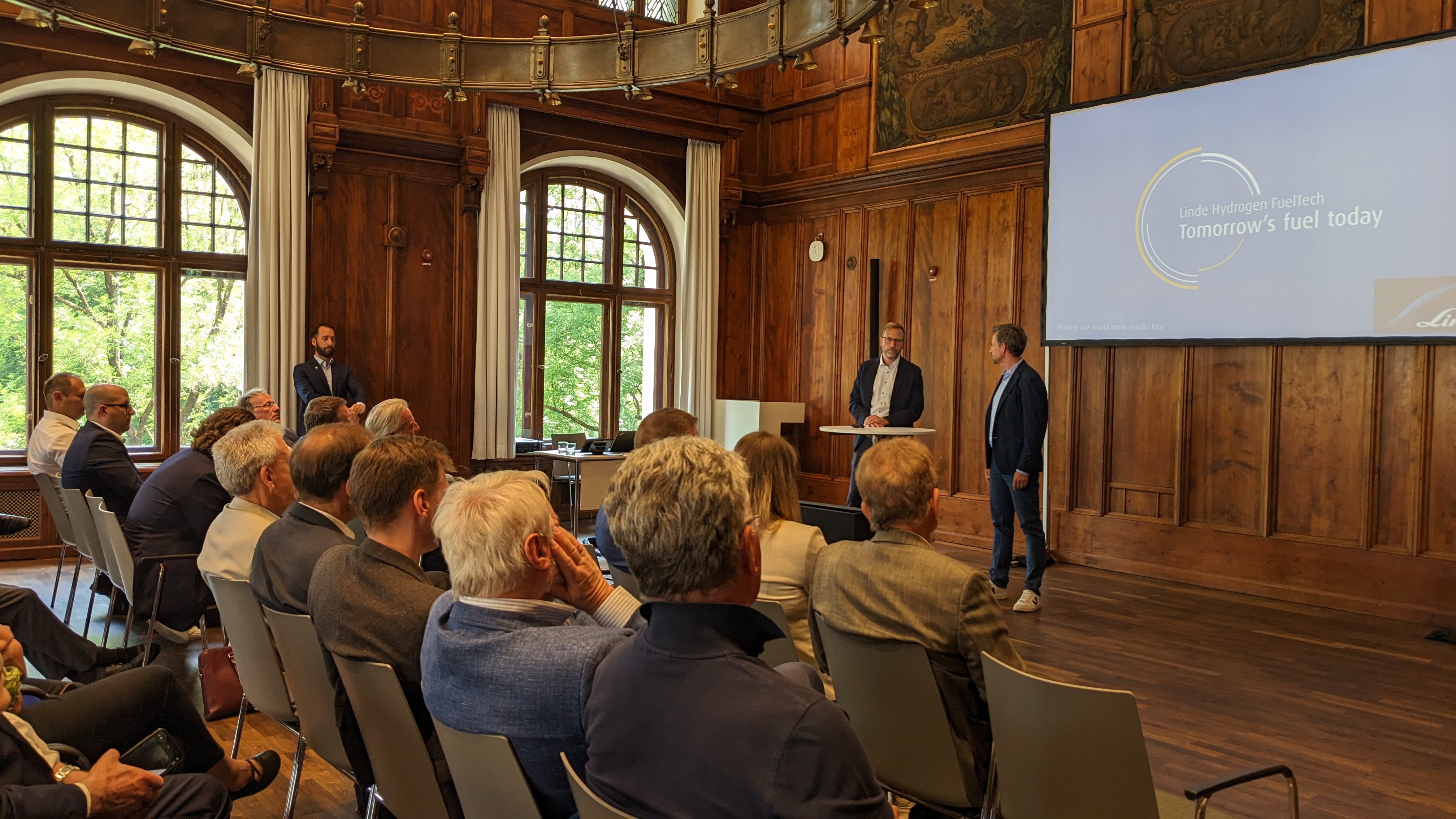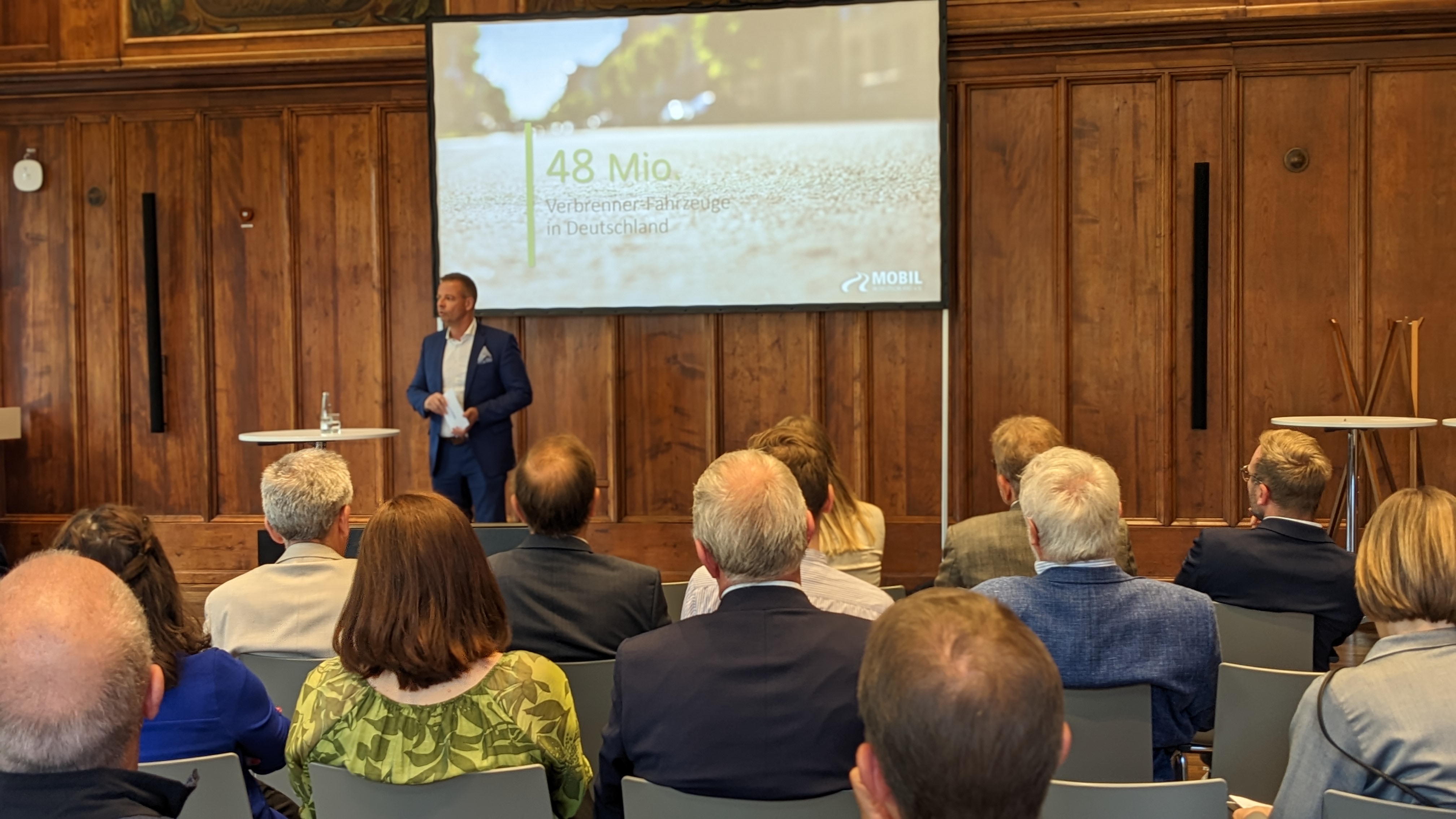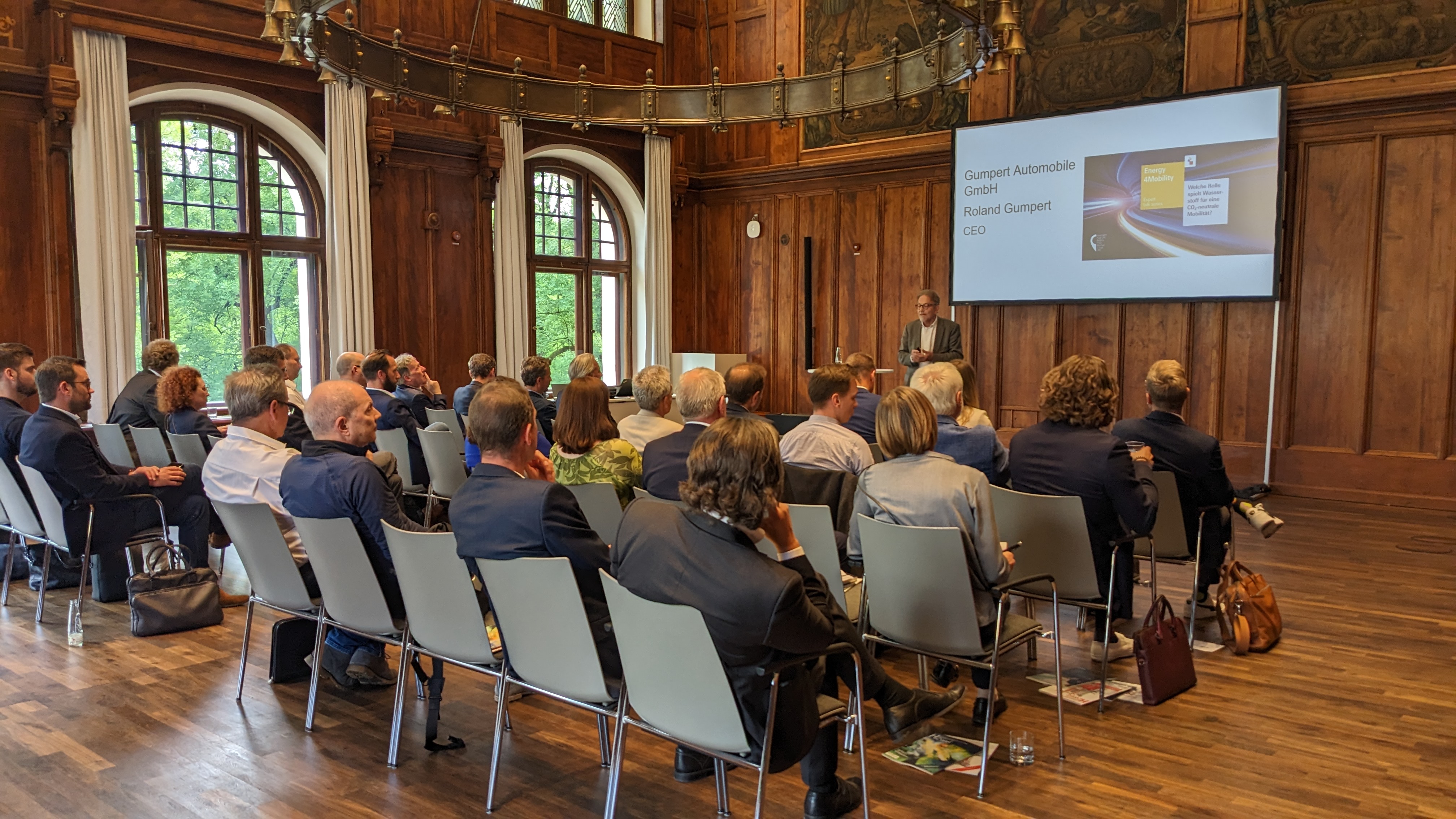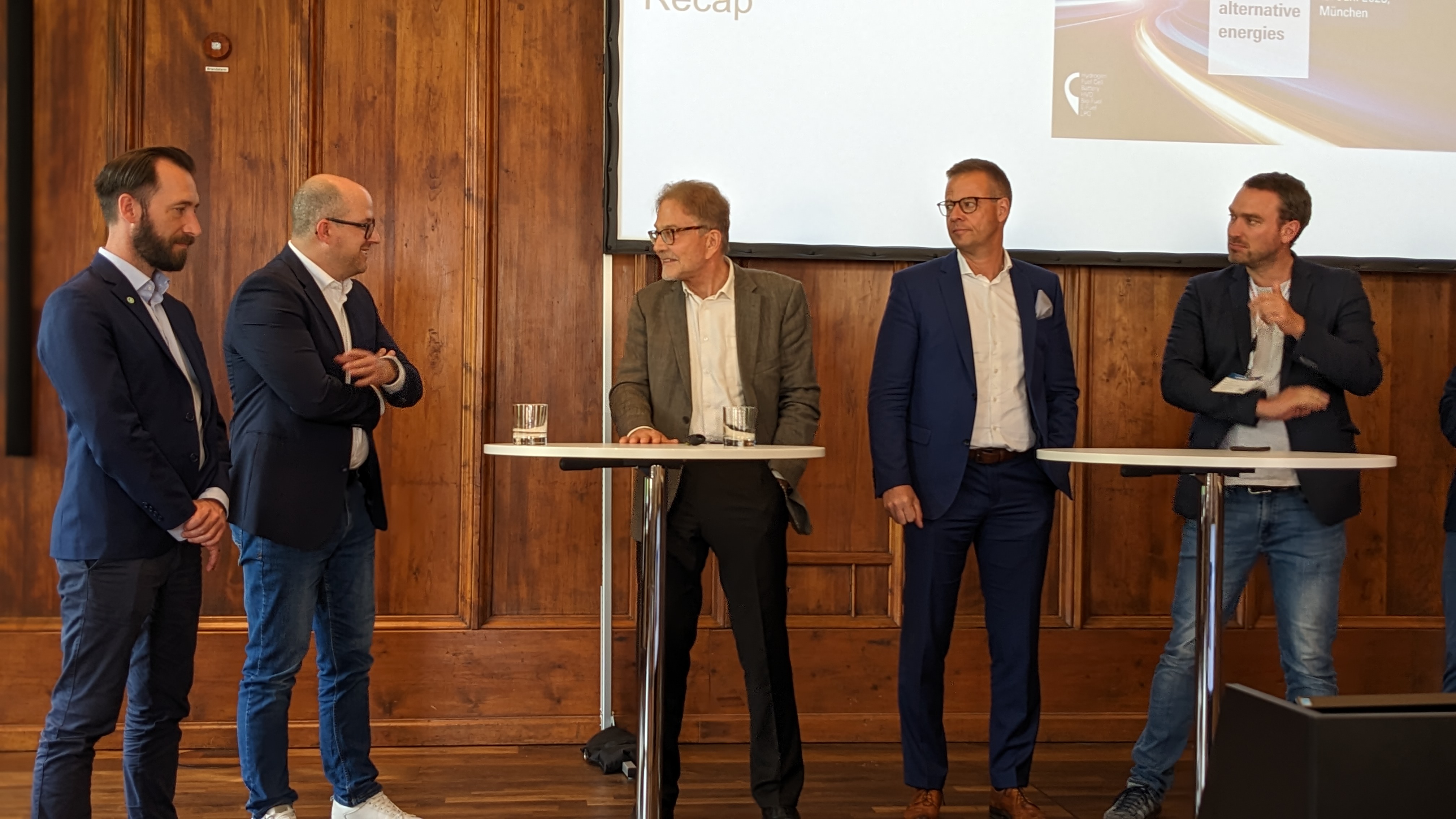This time, Messe Frankfurt's talk series took up the topic of hydrogen. Experts from ARTHUR BUS, Cryomotive, Gumpert Automobile, Hydrogen Europe, Linde, Mobil in Deutschland and UnternehmerTum discussed the question: What role does hydrogen play in CO2 -neutral mobility? Michael Johannes, Vice President Mobility & Logistics Messe Frankfurt, explained: "We created the expert talk series because there will be no mobility turnaround without alternative drive energies. Messe Frankfurt therefore wants to provide a platform for this topic and give important players the opportunity to present their innovative projects and ideas, to exchange ideas and to network."
Matthias Braun, Advisor Aramco Research Center (Paris), added: "I very much welcome the fact that Messe Frankfurt is organising this Energy4Mobility talk, which I am happy to support. There are several types of drive systems, and they all have to compete with each other. Hydrogen is a very important future type of alternative fuel. It's very good that speakers from different types of transport, including trucks and sports cars, and also from the energy, service, etc. sectors come together here and network." The Aramco Research Center Paris is involved in hydrogen, among other things. Braun explains: "Aramco is currently working with Hyundai and Bosch in Vienna on a new generation of hydrogen combustion engine.” Aramco is also pursuing the goal of supplying Germany with green hydrogen in the future.
In his presentation on "Reasonable use of hydrogen in transport", Dr. Ing. Simon Herzog, Senior Project Lead UnternehmerTUM GmbH, used the example of a long-haul flight to illustrate that it would not be possible to completely electrify all modes of transport. Hydrogen will play an important role in the future, especially since it can be assumed that the costs for hydrogen will decrease. Germany will not become a major hydrogen producer, Dr. Ing. Simon Herzog summed up and explained further: "When it comes to hydrogen, one can see that especially in regions around the world where there is cheap electricity, there is a strong focus on hydrogen, above all in Norway and in some regions in the United States of America. Germany in particular is comparatively well positioned as a technology supplier, but we will most likely not be the country that will produce hydrogen on a large scale because it is a very energy-intensive endeavour."
Dr. Ing. Simon Herzog summed up: "Like Henry Ford, who made the car a mass product with the invention of the assembly line, we need an assembly line production for hydrogen and all the components involved in hydrogen."
The fact that hydrogen refuelling has been possible for many years and that the technology is state-of-the-art was emphasised by Thomas Schaefer, Business Development Manager Linde GmbH, in his presentation on efficient refuelling technology for H2 vehicles. In the meantime, Linde has built various hydrogen fuelling stations worldwide, offering all types of fuelling for cars, trucks, buses, trains and other commercial vehicles. At the moment, there is also the issue of green hydrogen, which is not easy to implement, as this not only affects production itself, but also transport. But this is only a question of time: "With the advancing energy turnaround towards renewable energies, green hydrogen will be available," said Thomas Schaefer. Globally, there is no energy problem; in Africa, for example, there is 200 times more energy than is consumed locally. "There is no energy problem, but a distribution problem," Schaefer explained.
Daniel Duschek, Head of Requirements Management and RCS Cryomotive GmbH, spoke on the topic of cryopressure hydrogen for heavy-duty transport. He pleaded for a set of rules and the establishment of an international standard on hydrogen. Duschek explained: "We need a uniform standard for the suppliers. It cannot be that I am allowed to install the product in one application and not in another because higher safety requirements have to be met there. There are different guidelines here that need to be harmonised." As far as the work on corresponding regulations is concerned, Germany is quite active here: "We have the know-how that we can describe new technologies, that we can distinguish them from existing technologies, and that we can use the synergies. In Germany, we have a very strong community in this segment that supports the whole thing and continues to build it up in the international segment.” Standards also need to be developed for the infrastructure; for example, there are many different systems for refuelling hydrogen.
The start-up ARTHUR BUS GmbH has set itself the goal of shaping the future of emission-free mobility. Philipp Glonner, CEO and Co-Founder ARTHUR BUS GmbH, explained: "We want to solve the challenges of modern mobility - and we want to do it now. This requires accessible and affordable solutions. The first solution focuses on public transport, as ARTHUR can make an immediate and systematic contribution to zero-emission mobility in this area." Glonner presented the innovative energy concept of the ARTHUR fuel cell bus to the participants, which has a hydrogen consumption of less than six kilograms per 100 kilometres. ARTHUR not only offers emission-free buses, but is also a system manufacturer and is pursuing ambitious goals. "We also want to steadily expand further business areas within the ARTHUR Holding in the hydrogen sector, especially in Zero Emission Mobility, for example finding solutions for the infrastructure" said Philipp Glonner.
Dr. Michael Haberland, President of Mobil in Deutschland e.V., gave an outlook on e-fuels and the future of the combustion engine in Germany. He explained that with 48 million combustion engine vehicles in Germany, it would not be possible to operate them all electrically in the future, as the capacity for charging the battery at peak times would not be sufficient. Climate protection and climate-neutral mobility are also possible for combustion engines. For example, vehicles can easily be operated with e-fuels - or in the future with other fuels such as hydrogen. He pleaded for openness to technology: "We need competition among technologies."
Roland Gumpert, CEO Gumpert Automobile GmbH, expressed his preference for the use of green methanol as the fuel of the future. The company developed the 'Gumpert Power Cell' with a methanol fuel cell. In general, the 'Gumpert Power Cell' can be used for all modes of transport, but the company's focus is on trucks, as the transport and logistics industry urgently needs a solution here.
Roland Gumpert explained: "The next project is a 40 tons truck that is to travel from Munich to Spain in one go without stopping, and not like a battery truck that would then need three days to recharge in Spain." Gumpert Automobile GmbH aims to become a supplier to OEMs and is also working on product diversification. This would also solve the energy problem by using the waste heat from the 'Gumpert Power Cell' to heat a house. Roland Gumpert is convinced "that our technology will become a mainstream technology in the future, replacing much of other outdated technologies that pollute the environment and release emissions."
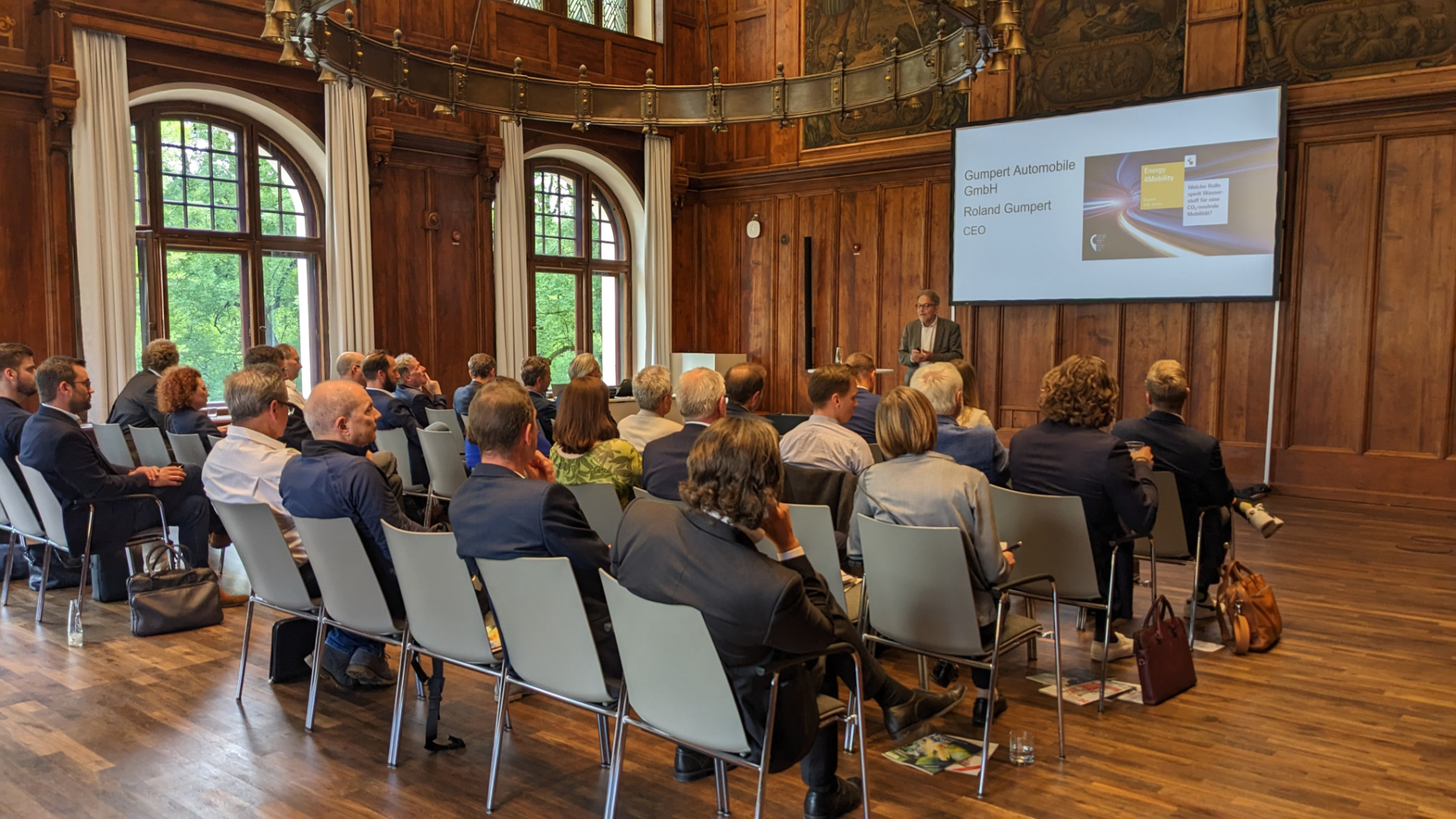
In the discussion round, the experts agreed that hydrogen is needed for emission-free mobility. The mobility turnaround will not succeed with electromobility alone. Open technology is the order of the day. Different technologies would probably be used in parallel, depending on the purpose, mode of transport and distance to be covered. There was also agreement among the participants that the networking of the actors was important and that the discussion had to be continued. Only together can the mobility revolution succeed.
The Energy4Mobilty talk series will be continued this year. The next dates and further information are available at mobility-logistics.messefrankfurt.com/energy4mobility.
[1] https://www.umweltbundesamt.de/themen/verkehr/klimaschutz-im-verkehr#rolle
[2] https://www.umweltbundesamt.de/themen/verkehr/klimaschutz-im-verkehr#rolle
Background information Messe Frankfurt
The Messe Frankfurt corporate group is one of the world's leading trade fair, congress and event organisers with its own exhibition grounds. Around 2,200* employees at the parent company in Frankfurt am Main and in 28 subsidiaries organise events worldwide. Group sales amounted to around 450* million euros in the 2022 financial year. We efficiently support the business interests of our customers within the framework of our "Fairs & Events", "Locations" and "Services" business segments. A decisive strength of Messe Frankfurt is its high-performance global sales network, which closely covers around 180 countries in all regions of the world. Our comprehensive range of services - onsite and online - guarantees customers worldwide consistently high quality and flexibility in the planning, organisation and implementation of their events. We use digital expertise to develop new business models. Our services range from venue rental, stand construction and marketing services to personnel services and catering.
Sustainability is a central pillar of our corporate strategy. In doing so, we strike a balance between ecological and economic action, social responsibility and diversity.
Further information: www.messefrankfurt.com/sustainability
The company's headquarters are in Frankfurt am Main. Shareholders are the City of Frankfurt with 60 per cent and the State of Hesse with 40 per cent.
Further information: www.messefrankfurt.com
* Preliminary key figures 2022
